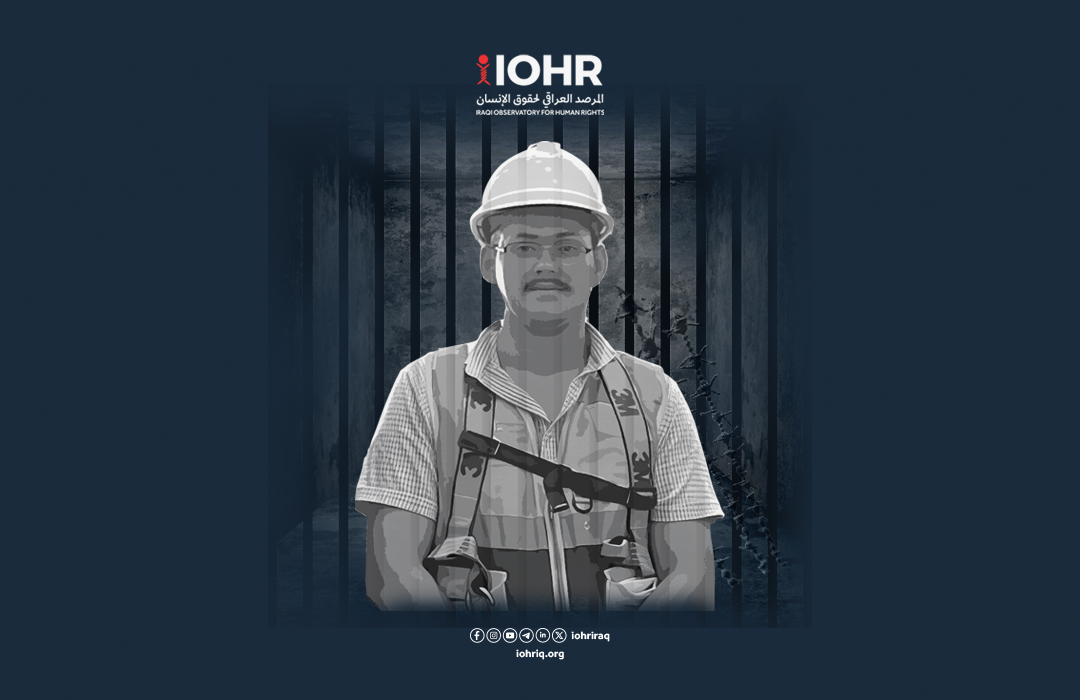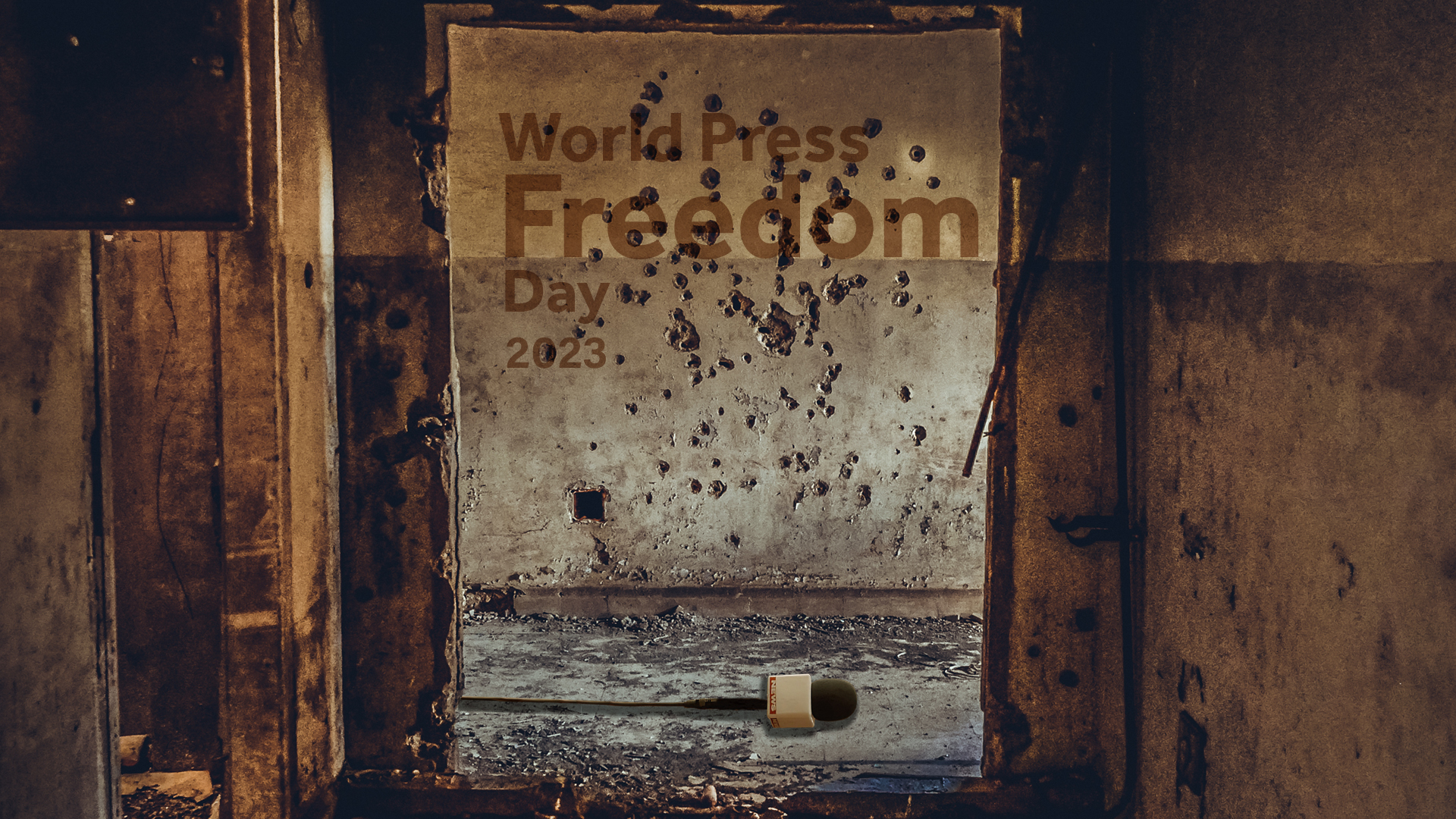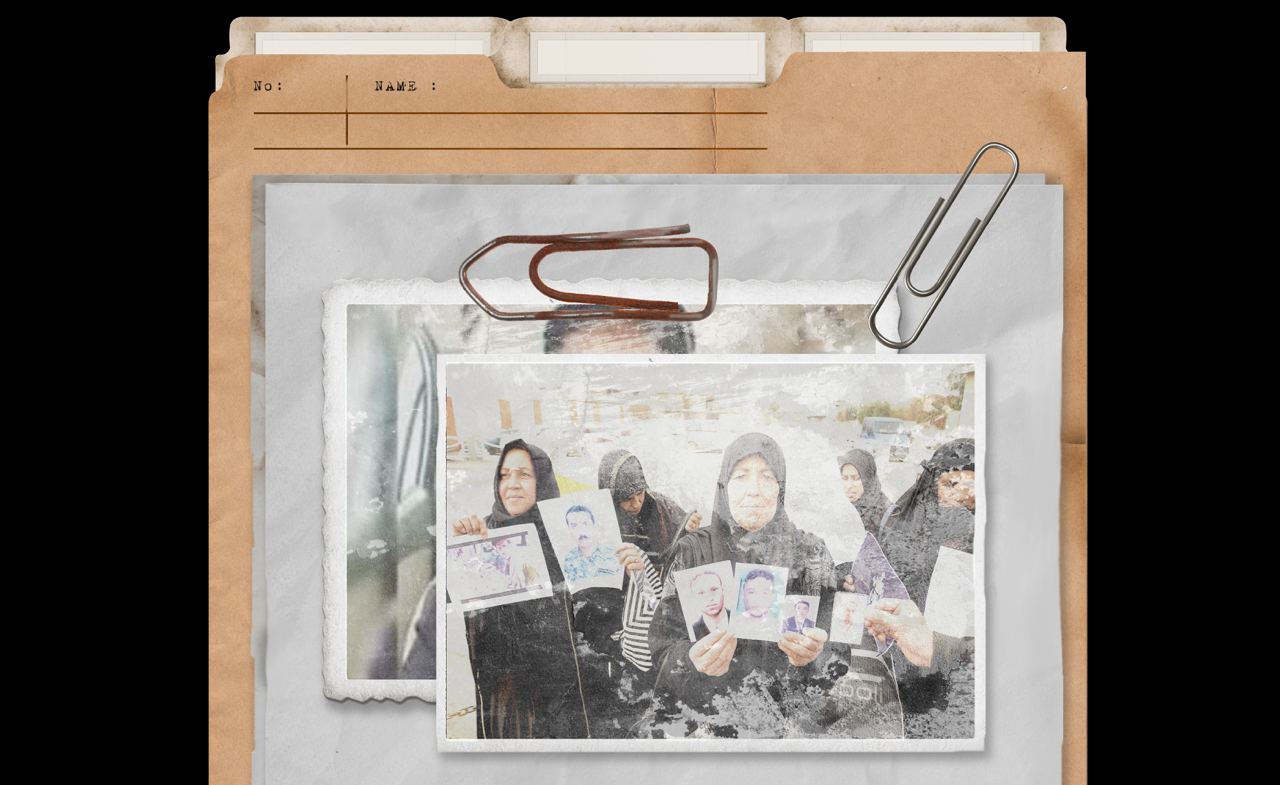The Iraqi Observatory for Human Rights is following with deep concern the case of the death of engineer Bashir Khalid, who was subjected to torture during his detention at Hattin Police Station in Baghdad.
The (IOHR) affirms that this incident is neither isolated nor exceptional, but rather a serious reflection of the nature of detention facilities in Iraq, which have, in many cases, become fertile environments for torture, neglect, and the systematic violation of human rights.
Bashir Khalid, an Iraqi engineer, was arrested on 30 March 2025, following an altercation with Major General Abbas Ali Al-Tamimi, Director of Salaries and Financial Affairs at the Federal Police Command, inside the Ayadi residential complex. He was subsequently transferred to Hattin Police Station, where the cycle of abuse began.
In a widely circulated video, Bashir is seen refusing to leave the holding cell inside the police station, as a group of individuals—reportedly sent by Maj. Gen. Al-Tamimi—attempted to transfer him under the pretense of relocation. Bashir’s clear refusal and behavior indicated his awareness that this group did not belong to an official security force, but was acting on behalf of the commanding officer involved in the case.
The video captures the moment when this group forcibly entered the cell and dragged Bashir out against his will. He was then reportedly transferred to the Tasfirat detention center, as confirmed by Member of Parliament Hussein Arab.
In an earlier video, Bashir is seen involved in a dispute with another detainee, allegedly over a piece of clothing. Surveillance footage shows the argument escalating into a violent assault in the bathroom, which further demonstrates the failure of police personnel to provide any form of protection. Subsequently, Bashir was documented lying in a critical state at Al-Karkh Hospital, unable to move or speak, with pale features and visible signs of exhaustion and physical abuse.
Medical reports later confirmed that he died due to acute renal failure resulting from the beating and medical negligence.
On 4 April, the Ministry of Interior announced preliminary findings of its internal investigation, confirming the altercation between Bashir and Maj. Gen. Abbas, as well as an assault by other detainees, alongside a failure by duty officers to respond in time. A high-level investigative committee was formed from the outset, and three administrative boards of inquiry were established to investigate Maj. Gen.
Al-Tamimi, his son, the investigative officer, and the duty shift. The case was also referred to the Karkh Criminal Investigation Department. In a press conference, the Ministry’s spokesperson, Brigadier General Muqdad Miri, confirmed that Maj. Gen. Abbas and several other officers had been detained pending investigation.
While the Iraqi Observatory for Human Rights acknowledges this official move as a preliminary step, it strongly emphasizes that justice cannot be achieved through closed internal proceedings or superficial administrative decisions. True accountability requires a comprehensive and transparent investigation under judicial supervision, with direct involvement from the High Commission for Human Rights and independent civil society organizations.
The Observatory reiterates that torture and ill-treatment in Iraqi prisons and detention centers are not new phenomena but are part of a systematic practice affecting detainees across the spectrum—whether accused of serious crimes, civil offenses, or administrative violations.
The Observatory’s previous reports have documented widespread use of beatings, suspension by limbs, sleep and food deprivation, denial of medical care, and deliberate psychological abuse.
Responsibility does not rest solely with the individuals who directly committed the assault. It also lies with those who facilitated, condoned, or failed to prevent it—this includes police station commanders, supervisory officials, and senior leadership within the Ministry of Interior. All of these actors bear legal responsibility for the safety of detainees, and any failure in this duty constitutes a form of complicity.
The Iraqi government is reminded of its binding obligations under the 1984 United Nations Convention Against Torture, which it ratified in 2011. This treaty obliges states to take all necessary legislative, administrative, and judicial measures to prevent acts of torture and to ensure accountability and remedies for victims.
Accordingly, the Iraqi Observatory for Human Rights calls for a fully independent and transparent judicial investigation, under the supervision of competent judicial authorities, with the participation of civil society and the national human rights institution.
(IOHR) also demands the public disclosure of all investigation findings without delay or manipulation, and the prosecution of all individuals involved—whether directly or indirectly—in a fair and public trial. In addition, there is an urgent need to review current detention and arrest procedures and to activate independent oversight mechanisms over all places of detention.
The case of Bashir Khalid is not merely an incident—it is a warning bell about the state of human rights in Iraq. Justice for Bashir, and dignity for every detainee, are constitutional and moral imperatives that cannot be ignored or postponed.




